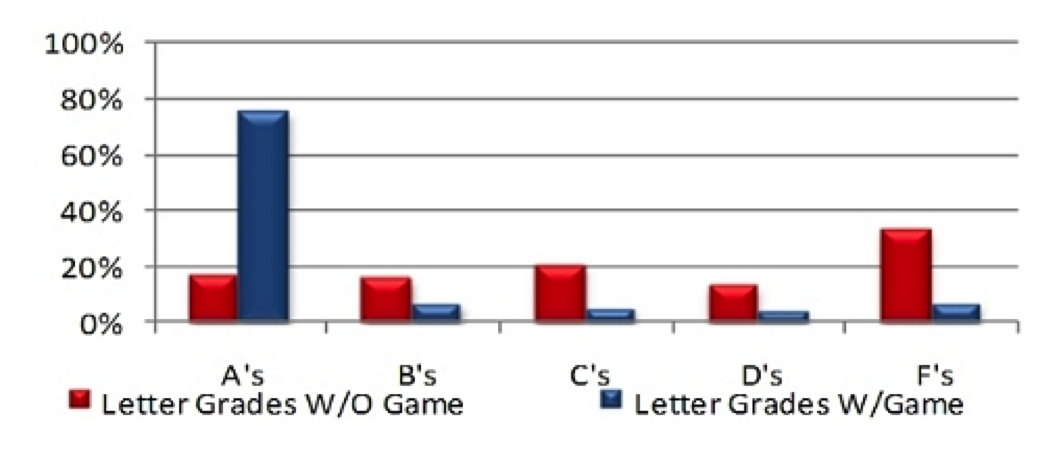Serious games

The term "games" still causes 99% of people to be associated with entertainment. And with entertainment empty, with useless pastime. Cause time, fun hour. However, today more and more often the game principle is used in psychology, teaching, business, military affairs and other fields of activity. Scientists and experts find games more and more applications in achieving very serious, non-entertaining goals. For example, today more and more often, gamification is used in building business processes within companies. But this is only one of the many forms of "serious games", as it is now called to call the whole range of use of gaming techniques in non-entertainment areas of activity.
')
In the most general definition, the essence of serious games is to simulate any real processes or events in order to obtain primary experience or skills in simulated conditions. That is, the main purpose of serious games is education and training. And do not be deceived by the word “game” - serious games are not always pleasant and fun for players.
The term itself dates back to 1970. However, as such, serious games first started to use the military in the 19th century. Today it is called “staff games”, and represents, in general terms, the statement to the headquarters of a military unit or a compound of a theoretical combat task, for which the officers must work out a certain sequence of actions and decisions. At the "citizen" serious games were mainly used in education, and it was not until the early 2000s that they began to flourish.
Species diversity
As we mentioned above, the variety of serious games is quite wide. The most popular include the following:
- Educational games. Mainly used in schools and universities. Help make the learning process more attractive.
- Gamification The main areas of application are business and education. Often represents the use of game mechanics in the construction of business processes or the passage of the curriculum.
- Simulations Some simulated real situations designed to develop specific skills without any risks in the learning process. For example, simulators of management of various equipment or enterprises, simulators of various situations in business, management or economy.
- Motivational games. Designed to encourage participants to change their behavior and attitudes through social interaction. Mainly applied in politics, management, sales, diplomacy.
- Rehab games. Used as a therapy in psychology, psychiatry and medicine.
- Promotional games. Entertaining games, the purpose of which is to advertise any goods and services along the way.
Earlier, serious games were conducted more in the form of live communication with other people, but now they most often acquire electronic incarnation, because computers make it possible to implement games for almost any task in a convenient form.
Efficiency
“After all, if the stars are lit — does this mean someone needs it?” How effective are serious games, are they really useful and necessary? Wouldn't it be better to discard this husk and, without “these” your games, engage in serious adult affairs?
To answer this question definitely can not, because it all depends on what kind of serious games in question. Take simulators. It is clear that their use can significantly reduce the risk of financial damage or a threat to the life and health of people, and it does not matter what is simulated: the management of an airplane or a large enterprise. The learner gains primary skills faster and more qualitatively, without being afraid to experiment, trying different approaches and getting a visual “reverse response”. The self-evident thesis about the absolute advantage of simulators is confirmed by the results of numerous studies. For example, in medicine . Or in oil production .
And how effective are games in education? Despite more than a century of pedagogical practice of teaching in a playful way, more or less serious studies of the effectiveness of this method have not been conducted until recently. In 2005, the project launched a two-year project to determine the effectiveness of games in the learning process . The results of the study convincingly demonstrated not only better assimilation of the material, but also an increase in student performance, regardless of gender.

The youngest and most ambiguous kind of serious games, gamification, often raises doubts about its effectiveness. In the minds of most people, especially those who make responsible decisions, games are in no way compatible with serious matters. The leaders of the old school are especially opposed to this idea.
One of the clearest examples used by gamification proponents is the creation of a new form of protein. This was made possible thanks to a specially written game in which you need to connect proteins together, getting points for it. Thanks to some configurations created by players, biologists were able to synthesize a new protein, whose activity is 18 times higher than the original.

Another example, much closer for businessmen, is the experience of LiveOps Inc. Thanks to the introduction of gamification, they managed to increase sales by 12% and significantly improve the quality of customer service.
Another study that refutes the idea of games as an extremely useless pastime, was the work of scientists from the University of North Carolina. It analyzes the effectiveness of gaming techniques in training compared to passive observation, the study of textual, as well as hypertext sources. It turned out that learning in the form of a game is not just not inferior, but is the most effective and (surprise) enjoyable way of learning. The game does not interfere with the process of obtaining and consolidating knowledge.
As you can see, numerous proofs of the effectiveness of advertising, motivational and rehabilitation games only confirm the importance of serious games as a tool in achieving all sorts of goals, ranging from memorizing the alphabet to influencing the foreign policy of entire countries.
And the development of this most pleasant way of obtaining knowledge and skills was made possible only thanks to the wide distribution of high-performance computers, laptops, tablets and smartphones. We have a serious hope that in the future the use of serious games in various fields will only expand. And we only support it.
Source: https://habr.com/ru/post/221855/
All Articles